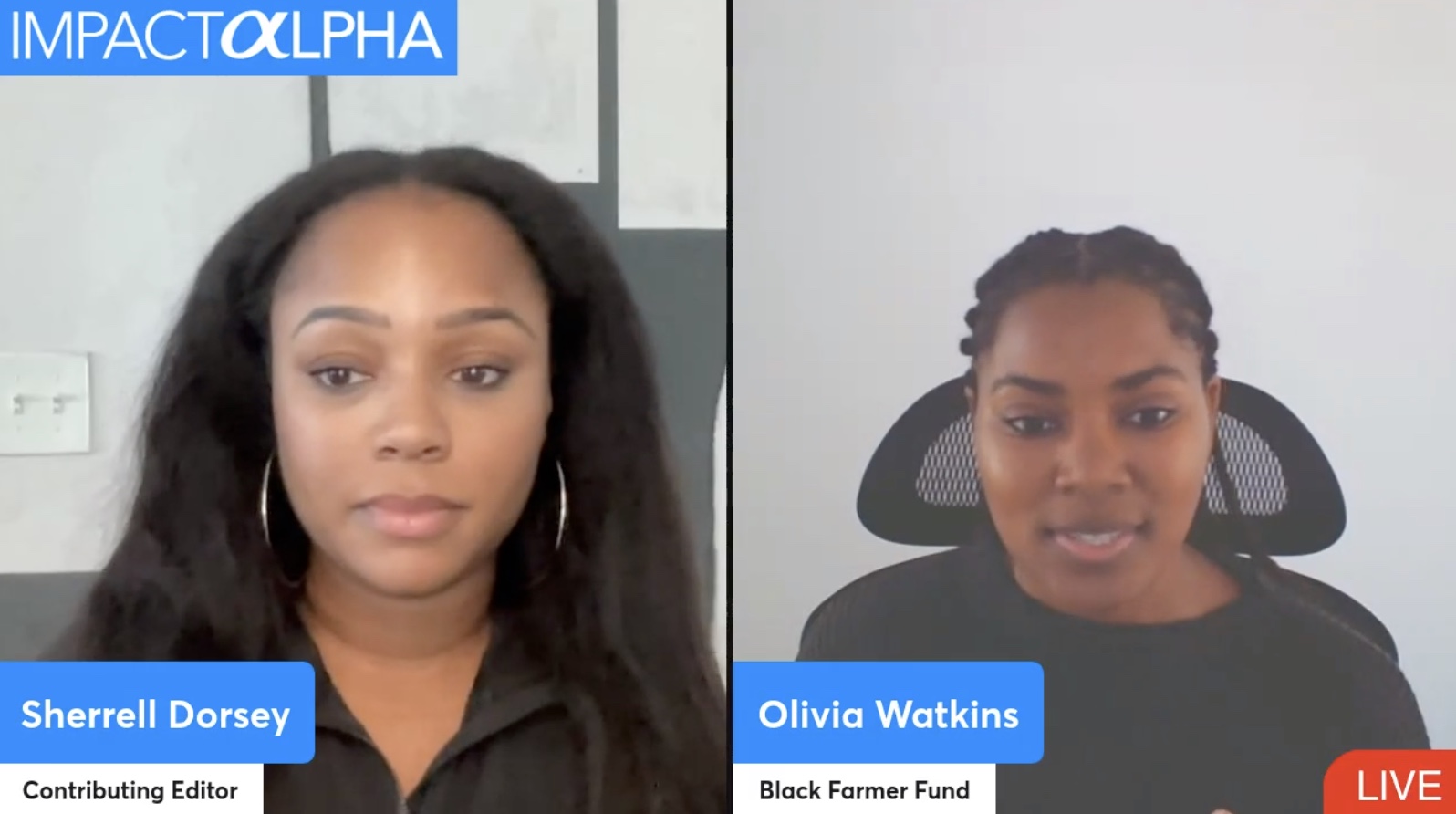ImpactAlpha, Dec. 22 – Diverse innovators building for all customers in large industries like digital health, fintech and the future of work have been largely overlooked by venture capital.
With capital, community and coaching, Lenore Champagne Beirne of New York-based Bright Ventures is finding them and helping unlock the opportunity.
“The burden and opportunity for me was to help people think about, ‘how do you succeed in a system that’s not built for you?’” Champagne Beirne told me on this week’s Plugged In call.
“We believe that if you can locate the leaders who have a plan for leading in this complicated, highly fragmented and polarized market, and who can sell into these huge industries, that’s a winning strategy,” says Champagne Beirne.
Champagne Beirne founded Bright Ventures as a strategic advisory and executive coaching service prior to expanding to include an early-stage fund. The firm has deployed capital to about a dozen founders over the last year, with plans to continue investing in social solutions-oriented companies like Mae, ShareWell, and KeepWol, among others.
Inclusionary funding
In the world of finance, capital is not distributed equally.
Funding to white and male founders starkly outpaces capital deployment to underrepresented founders of non-white racial ethnicity as well as women. Even among top-funded startups (at the time of exit), underrepresented founders received an average of $91.1 million, according to McKinsey, compared to the average white male founder, which received over $200 million.
In 2020 and 2021, following the murder of George Flyod and the social protests that followed, funds investing in underrepresented founders grew in number. Capital, at least momentarily, and mostly from corporations like Apple and Google, followed.
Then the economic slump in 2022 slowed funding, and so did support for underrepresented communities, companies, and fund managers as well.
The changing market hasn’t deterred Bright Ventures’ mission of ensuring that the best ideas win.
“While we don’t have demographic qualifiers,” Champagne Beirne continued. “The vast majority of the founders that we’ve backed today are underrepresented founders, meaning people of color and women.”
Coaching for longevity
Champagne Beirne works with archetypal founders, or “over owners,” who have broken through the odds, but often feel that they cannot ask for help and must do everything themselves. She says Bright Ventures’ coaching can help them tackle massive business challenges and grow their companies.
“The support that you offer to a founder, yes, has to be what’s the next button to press on your venture,” she said. “But it also has to be flexible enough to meet founders where they are when they’re dealing with other things.”
Her goal with historically excluded founders, she says, is to help them understand, “How do you retain your health, your mental health? How do you retain the networks that will keep you and your company moving?”
Coaching founders doesn’t just include teaching founders how to make the arduous transition from startup founder to CEO, says Champagne Beirne, but also helps them to manage the stress of building a company. For Black founders, this also looks like dealing with the stress of systemic racism.
“Founders are two times more likely to suffer from mental health conditions like anxiety and depression. Black founders might also be dealing with a compounding of other issues, including the stress of being black in America period,” she says. At Bright, “we do have direct founder support that feels really business-specific. We also just have safe spaces for Black leaders to gather.”






